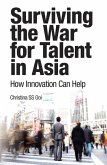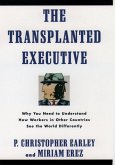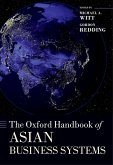The gap between the abundance of American higher education talent and the immense foreign demand for it is the great chasm in global education. It is a gulf of lost opportunities. It is also a space of great economic potential. This book describes the great chasm, examines factors underlying it, and suggests ways to bridge the gap to realize this potential. The abundance of talent stems from the slackening growth of the U.S. higher education sector in the New Millennium. Contributing to the slowdown are flat enrollments, adverse demographic trends, U.S. visa restrictions, and intensifying competition. The immense foreign demand has been fueled by the secular expansion of the global economy. It has been shaped by the pressing need in emerging markets to develop an educated workforce. The great chasm creates an opportunity for American academic institutions to extend their global reach. Bridging the gap, however, is not an easy feat for most U.S. colleges and universities. It is complicated by an institutional culture that is averse to commercialization, an organizational structure that is operationally slow, and a governance system that often leads to indecision, conflict, and paralysis. Bridging the gap requires fundamental changes in the culture, organization, and governance of traditional U.S. academic institutions. These changes will pave the way for international expansion, which could enhance the financial well-being of these institutions, the social-well-being of less developed nations, and the critical role that America plays globally in knowledge creation, the dissemination of ideas, and the pursuit of the truth.
Dieser Download kann aus rechtlichen Gründen nur mit Rechnungsadresse in A, B, BG, CY, CZ, D, DK, EW, E, FIN, F, GR, HR, H, IRL, I, LT, L, LR, M, NL, PL, P, R, S, SLO, SK ausgeliefert werden.









